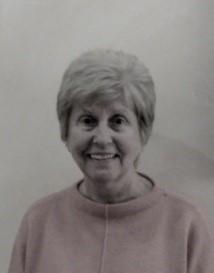
By Pat Beaver
Diane grew up in Decherd, Tennessee, a small town near the Cumberland Plateau. After high school, she attended Gulf Park College for women, in Gulfport, Mississippi, as well as Rollins College in Winter Park, Florida, where she graduated with a degree in English.
As a child, growing up in a small town she didn’t have the experience of participating in Women’s sports. At that time, most gals only had the opportunity to play some basketball, or be a cheerleader, or a majorette. At the age of 10, she went to camp, and it was there that she learned a lot of sports. Tennis and badminton were her favorites.
She played some tennis during her college years. Rollins College had a really good tennis program. She had never before seen tennis like that, and it is one experience that inspired her.
Then comes marriage, and along came baby in a baby carriage. During those early years, living in Atlanta, Diane did some substitute teaching, worked in a dress shop, played bridge, taught swimming to children, and became an avid tennis player.
Atlanta had a ladies tennis league called ALTA. When she told her teammates about a possible move to Nashville, they laughed and suggested she start a league and call it NALTA. The family did make the move to Nashville in 1979, to join a family business, Davidson Equipment.
In 1981, she began to formulate the idea for NALTA. At first, she got the Atlanta ALTA rule book, changed things that were not applicable, and formulated NALTA rules to fit Nashville. The first season was in the spring of 1982. That first year, there were only 3 levels; AA, A, and B. In the 80’s they participated in some local daytime TV interview shows in Nashville, to help bring publicity to the tennis scene. That was exciting. Now, 38 years later, the Thursday league has 15 levels, with B7 being the entry point. Many of those levels also have 2 divisions. Additionally, Senior NALTA, Singles NALTA, and Working Women’s NALTA have also been added.
Originally, Diane recruited 3 coordinators to help with planning, scheduling, and tracking of the matches and scores. The most difficult part is the scheduling. There are now 9 or 10 coordinators
When asked if it’s been worth it Diane says, it’s been exciting, fun, and a great avenue for getting to know each other. After a few years, she personally stopped being a captain. Once removed from that role, it became even more fun. She is so happy it’s grown so well.
For the future Diane plans to do it as long as she can. Her daughter, Lori helps a lot, and will probably take over management at some point….. But not yet! Diane’s just going to keep on keepin’ on.








